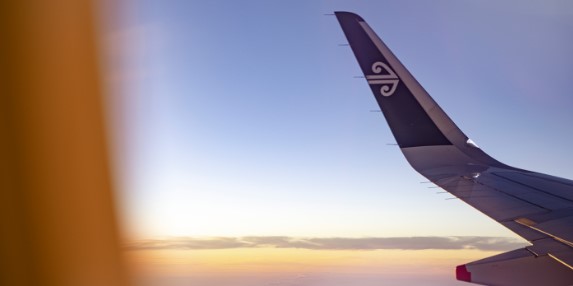The Airline trade body IATA has lowered its expectations for global passenger traffic this year amid to reach a stable level in the recovery and austere forward booking indicators.
IATA now anticipates passenger traffic, as measured in RPKs, this year will be 66% down on 2019 levels. This marks a deterioration on its previous forecast that traffic across the year would be 63% down on last year’s levels, the real problem remains international travel.
The grimmer outlook reflects a slowing in air traffic recovery. Traffic data for August – the peak month for the airline industry, released by the association last week – shows passenger traffic remains 75% down on the same month last year.
IATA chief economist Brian Pearce explained” Domestic markets were encouraging – they were at a point that was roughly 50% down on last year. The real problem remains in international air travel
”International air travel markets were down 88% in August, and what we can see is….they are levelling off. We saw a slightly slower pace of improvement from July to August than we had in the previous few months.”
More worrying are indicators from September that not only has the recovery tapered off, but that in some markets it is regressing.
”Looking at the flight data, which gives us a clue to what happened in September – it’s clear that while our data for August shows a further improvement, that improvement more or less stops early in the month. We see the market reaching an inflection point,” says Pearce.
“Domestic flights have not improved in the last six weeks – and the one international market where we had seen some kind of revival within Europe…has clearly been hit by the renewed rises and second wave of coronavirus. And flights from many of these markets have actually been declining.”
Neither does forward booking or consumer confidence data for the fourth quarter provide any reason for optimism. ”Until we see stronger consumer confidence, we are clear that the revival in leisure passenger travel will be relatively weak. Indeed we think we see this in forward bookings data,” says Pearce.
”The consequence of all of this is we are now less optimistic about growth in air travel than we were when we last did our forecast in July. We thought we would get to a point in December where global RPKs were 55% down last year. They were 75% down in August and given the bookings profile we see, we think we will only get to minus 68% by December.”
As a result, it has now lowered its overall projections for passenger traffic to be 66% down on the 2019 figure.
Load factors in August were still down almost 28 percentage points at 58.5%. “They have improved from that low point in April, but we think both domestic and international load factors are well below what would be necessary to break even – so the industry is restarting but it looks as though it is still burning through cash in its operations at the moment,” says Pearce.
”We do think the coming winter months are going to be pretty challenging for the airline industry,” he adds.
IATA has not yet revised its financial outlook for 2020 in light of the bleaker traffic outlook. It has previously forecast industry losses of a staggering $84 billion for this year.
Pearce though does note the slower recovery in traffic does not particularly impact its longer-term forecast for when passenger traffic may return to pre-crisis levels.
“Those forecasts which were for recovery of 2019 levels by 2024, were conditional on getting a vaccine sometime in the second half of next year and at the moment that seems to be on track – so the later years forecast we have not changed,” he says.
“Our concern is more the next 12 months – and clearly we are hoping an effective and cheaper testing regime might improve the situation.”
Meantime IATA Director General/CEO Alexandre De Juniac has warned of imminent airlines bankruptcies this winter. The world’s airlines are hemorrhaging cash at a rate of around $300,000 per minute or $13 billion per month, which could force large swathes of the industry into bankruptcy within months, IATA has warned. With traffic levels set to remain stunted through 2021.
(Source IATA)
Stay well!
Joe
 Taking on the Tasman: Air New Zealand Unleashes 1.7 Million Seats for Summer
Taking on the Tasman: Air New Zealand Unleashes 1.7 Million Seats for Summer  Oman Air Elevates In-Flight Dining with Exquisite Omani Rock Rose Dessert
Oman Air Elevates In-Flight Dining with Exquisite Omani Rock Rose Dessert  Cathay Pacific Elevates Inflight Dining with ‘Chinese Classics’ Menu
Cathay Pacific Elevates Inflight Dining with ‘Chinese Classics’ Menu  Hong Kong Airlines Set to Land in Sydney—And Travellers Reap the Rewards
Hong Kong Airlines Set to Land in Sydney—And Travellers Reap the Rewards  Lufthansa Unveils Newly Designed First Class Lounge in Munich
Lufthansa Unveils Newly Designed First Class Lounge in Munich  Etihad Expands Fleet with 28 Boeing Aircraft, Strengthening Global Growth Strategy
Etihad Expands Fleet with 28 Boeing Aircraft, Strengthening Global Growth Strategy  Silversea’s 2026 Venetian Society Reunion Voyage: A Celebration of Italy’s Finest
Silversea’s 2026 Venetian Society Reunion Voyage: A Celebration of Italy’s Finest  Regent Unveils World’s Largest Ultra-Luxury Cruise Suite: The Skyview Regent Suite
Regent Unveils World’s Largest Ultra-Luxury Cruise Suite: The Skyview Regent Suite  MSC World Asia: A New Wave of Excitement Hits the Mediterranean in 2026
MSC World Asia: A New Wave of Excitement Hits the Mediterranean in 2026  Oceania Cruises Taps Top Chefs as Godparents of Newest Ship Allura
Oceania Cruises Taps Top Chefs as Godparents of Newest Ship Allura 